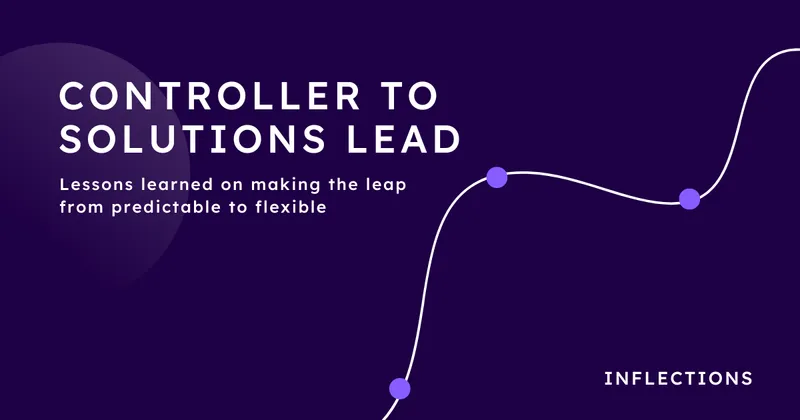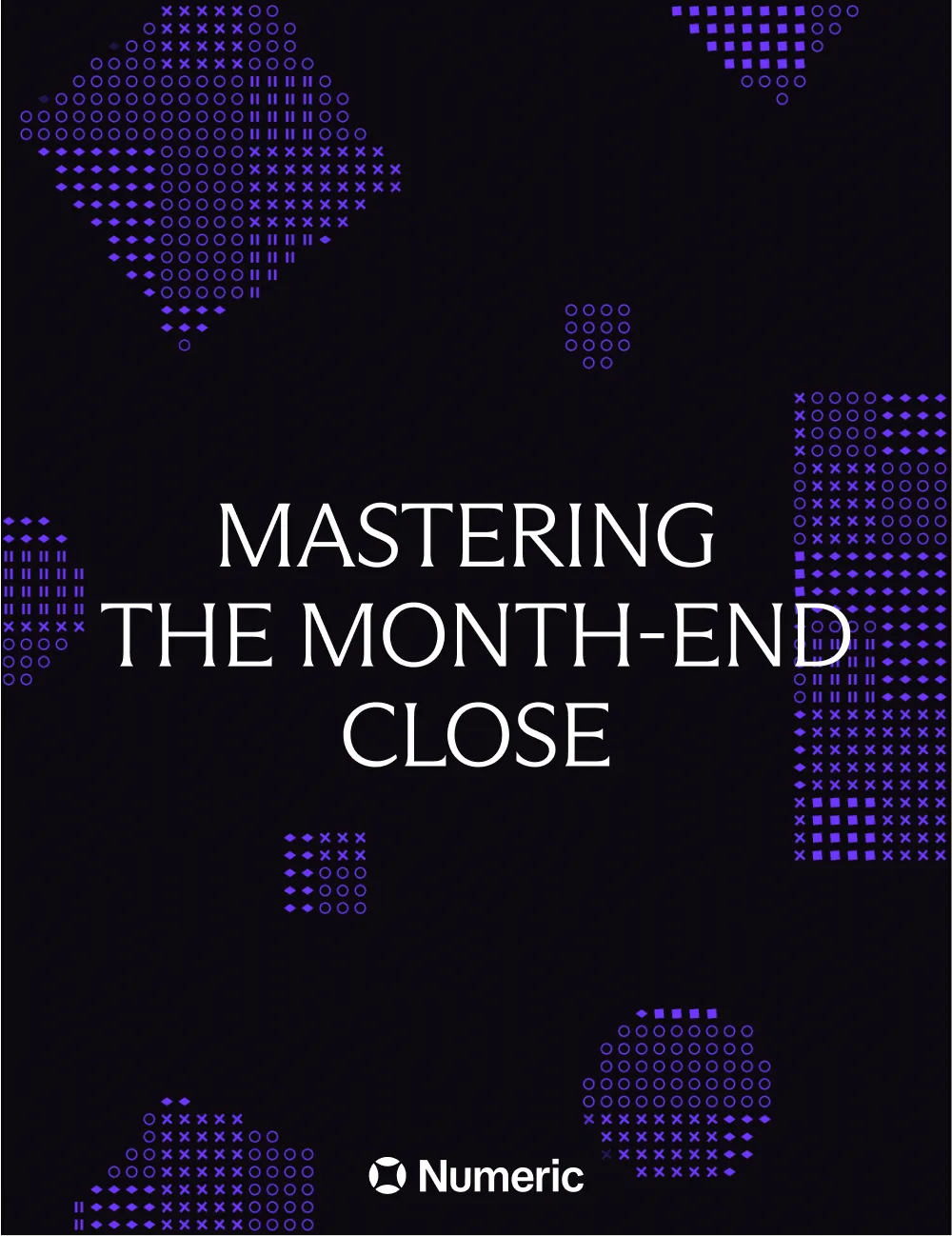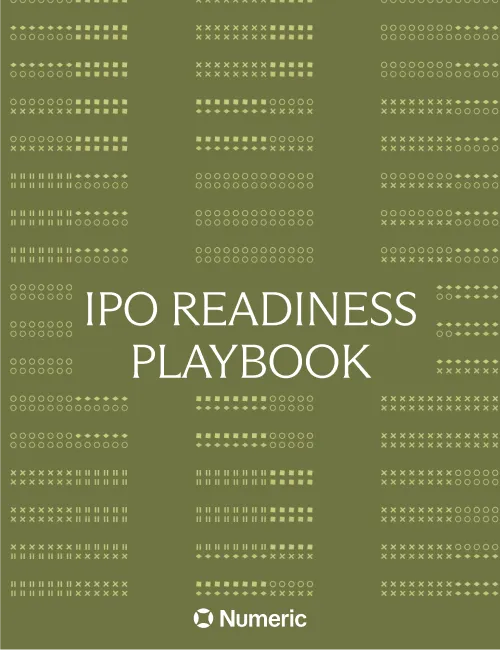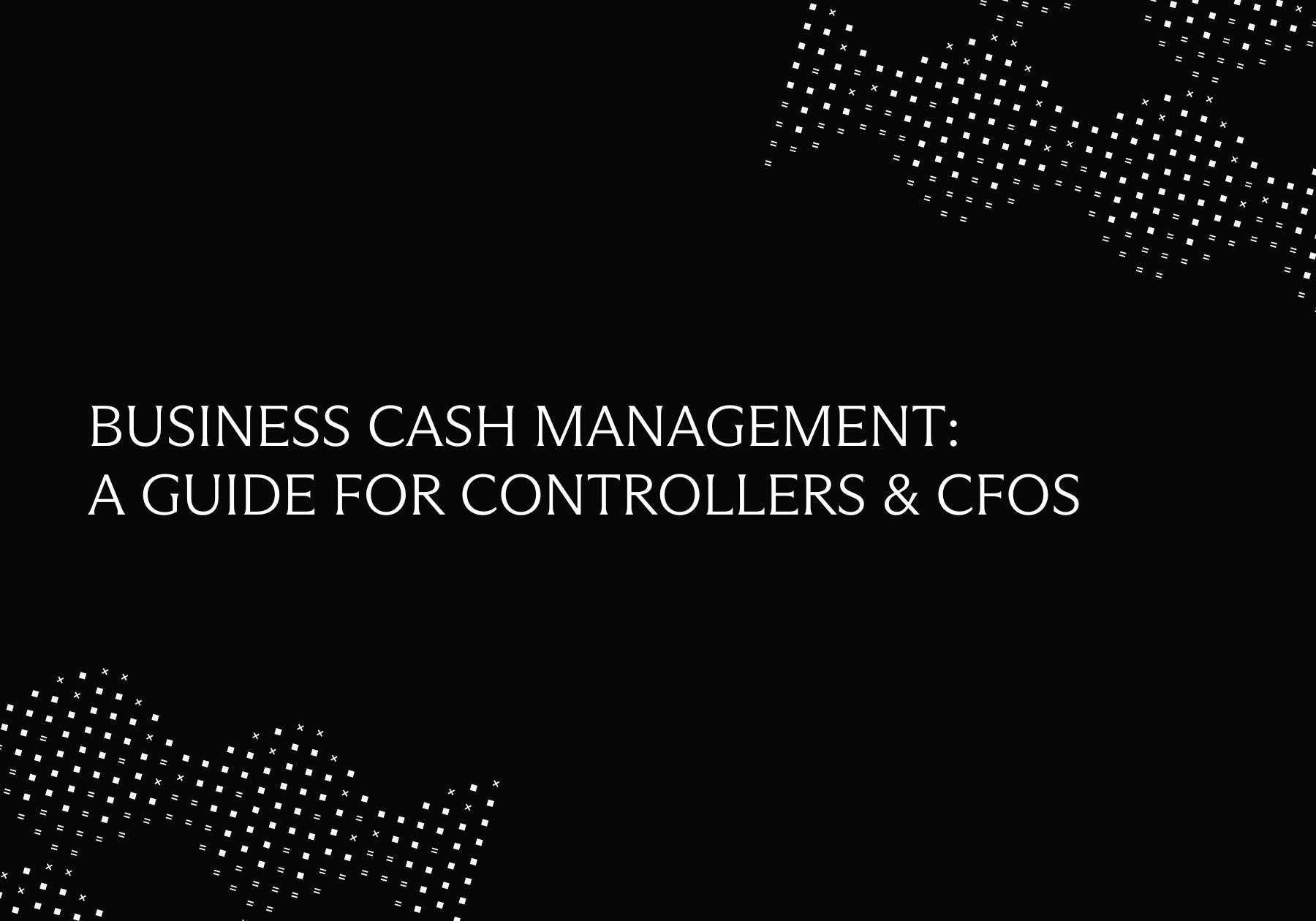Making the Leap From Controller to Solutions Consultant: Predictable to Flexible

I spent over a decade in Controller and accounting advisory roles. Then, I made the leap to join Numeric as a Solutions Lead, working with our customers to implement the product.
Queue a barrage of questions from former coworkers, family, and friends: Why I’d make the leap? What’s different about the world of a fast-growing start-up? What’s hard and what’s rewarding?
For anyone considering a similar leap, I’ve written down responses to common questions and what I’ve learned in the role to date.
The bottom line — flexibility is key.
Why the Change?
Working as a controller was (generally) enjoyable - there is exposure across the business and the opportunity to work closely and build relationships with other leaders in your finance organization.
Bringing order to what can often feel like a chaotic process in the month-end close is a fun challenge. Implementing new systems, coaching other team members, and seeing them own more of the close, are some of the most rewarding aspects of the job. So, why the change?
Part of me started missing my accounting advisory days - the opportunity to connect with different clients, see how they tackled problems, learn about their tech stack, and devise solutions to their most challenging accounting issues. The variety of work and people that client-facing roles provided was similarly rewarding to me and something I missed as a controller.
Enter the Solutions Lead role.
Weighing the Decision to Join
I did not decide to transition from a more traditional accounting role to a software solutions-focused position on a whim. Collaborating with engineering and product on new features was an enticing part of the job, but also one I never fully experienced in my previous roles.
I knew I could design beautiful Excel accounting templates, but website design paradigms and thinking through how a user might behave within our product would (or should) be a new adventure.
How well would my experience translate to delivering for our customers? How would I fit in given my whole career was surrounded by people who spoke my accounting language?
These were just two of the many questions that were top of mind when entering an entirely new role at a startup.
How’s it Going?
In summary - whew! It has been quite the ride already and we’re only 5 months in.
Onboarding our customers and developing a deep knowledge of our product comes with time.
Still, by investing upfront in watching previous onboarding calls and working within the product itself, I’ve fast-tracked my comfort with the customer onboarding aspect of my role.
What’s been most motivating is watching accountants light up at what we’re building here. From my days as a Controller, I know the burden they’re feeling and it’s rewarding to help teams reduce stress and pressure around the close.
Our customers have great questions and ideas for the product, which are always welcome. Balancing between redirecting to what our product can already support versus something we’d want to build is an analysis I’m fine-tuning each day.
What’s Surprised Me?
While helping clients be successful with our product is the core of my role, the reality is that I wear many hats each week, playing a role in our product development, marketing, and sales conversations.
Aside from onboarding sessions, three things have surprised me in my first 6 months:
- Before joining I’d assumed accounting jargon would get in the way of product development. Not the case. My engineering colleagues are interested in learning more about accounting so language concerns are generally not a blocker in our working relationship.
- Our marketing outputs are excellent and do a great job of balancing the seriousness of accounting with a bit of whimsy.
- Joining sales calls has been surprisingly rewarding, they often provide great insights into potential product directions.
Engineering
One of my favorite experiences so far was presenting at our team offsite on what it means to reconcile different accounts - what sources of information do you need? Where are the risks of error that you’re trying to identify early or prevent? The engagement and questions from our engineering team were great to see given they are not subject matter experts.
Hearing their questions also helps uncover some of the nuances in our product and how we should make it as easy to adopt for anyone who isn’t as well versed in these processes (e.g., a junior or staff accountant starting their career).
Marketing
As an accountant, I would not describe myself as overtly creative.
Creative problem solving sure, but there is only so much creativity allowed under the rules of accounting. The chance to work with our marketing team on creative posts and customer interactions has been a joy. I’m impressed every time I get on my weekly marketing call with the ideas that are floating around and how a fun spin on an accounting topic can prove engaging for our customers.
Sales
I’m certainly not cut out for sales, but it has been enjoyable nonetheless to be involved in the process and understand how customers evaluate our value proposition.
As someone familiar with the close management space, I’ve enjoyed collaborating with prospective customers on calls, hearing their pain points, and highlighting how Numeric can help.
My favorite parts are walking through the analytical tools like AI Flux, Search, Reports, and Monitors and detailing how I would use these tools to capture reclasses before even getting to month-end close which can reduce the pressure in what is already a jam-packed close timeline for most companies.
What Are The Biggest Differences?
The biggest difference so far has been the variability, which (thankfully) is exactly what I was looking for in this role. In my previous controller roles, there was always a lot to manage and think through, but having that focus on one company meant that despite new asks popping up, the crux of the issues was fairly constant (barring a ton of M&A activity of course).
In this Solutions Lead role, we have a diverse international customer base with different priorities for their close and, as a result, for their close management tool. I’ve loved the exposure to new companies I wouldn’t have otherwise engaged with as an internal controller.
Of course, there are some new challenges compared to being a controller. One of the challenges has been taking what I’ve learned throughout my career and advising our customers on ways they might improve their close.
Some customers actively seek feedback on their current process or checklist. Others are more sensitive to a relative outsider suggesting new approaches to their close. Regardless of whether a company is ready to implement some changes, it has been gratifying to see large teams take to our product and witness close improvements along the way.
How Has My Experience Been Working at a Start-up?
Working at a start-up isn’t for everyone. When working at a smaller company you can’t put your head in the sand and try to go unnoticed. Stress in another department will quickly be visible and shared across the company to allow everyone to see how they can best support the team.
Aside from the occasional stressful day, remaining patient can be a challenge amidst my excitement about our product. I love talking about our roadmap and thinking of where we’ll be a year from now and often wish (or push) for some of these items to be deployed tomorrow. Of course, that isn’t reality, and as they say, good things come to those who wait. However, I continue to be impressed by how our small but mighty team delivers new and useful updates for our team every week.
What Does the Future Hold?
I am an accounting nerd and love tackling accounting problems— I’m currently of the mind that another controllership role is somewhere in my future career path.
In the meantime, I appreciate every day I get to interact with a new team and learn about their business and their accounting.
Overall, jumping to the Solutions Lead role has translated to visibility across the business, a direct role in product development, and exposure to accounting teams of all sizes and industries. All of which I’m confident will make me an even stronger Controller when I’ve decided to transition to an in-house accounting role again.
Interested in joining the team? Numeric is hiring.






















.png)